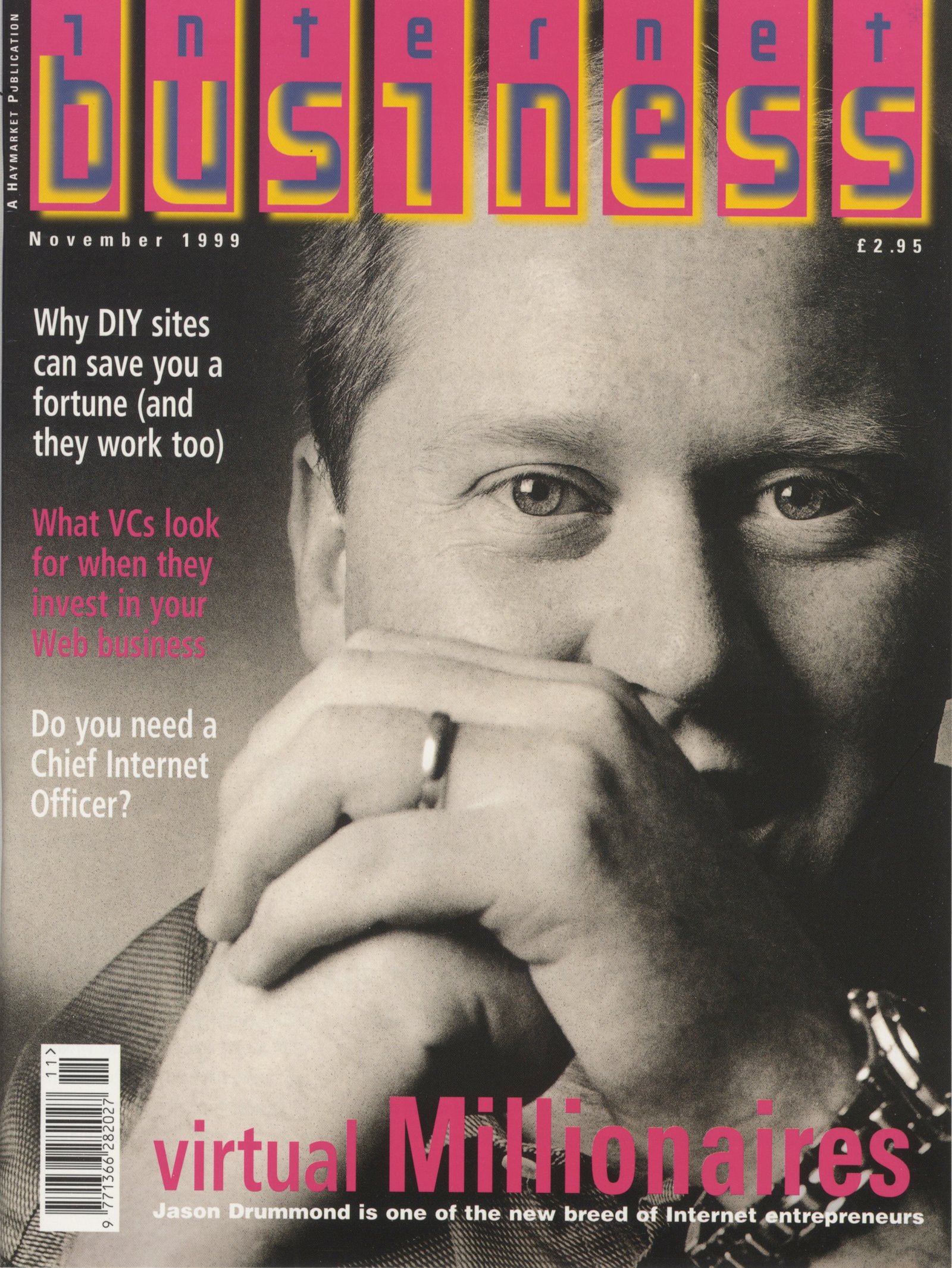Jason Drummond, Ajaz Ahmed, Adam Twiss. Every newspaper you look in is keen to report how quickly young men like these have made their fortunes on the World Wide Web. Last month The Sunday Times published an index of the UK’s top 100 e-millionaires. A day later, The Guardian published the e50, identifying Britain’s Internet pioneers who have transformed the face of British business. A month or so earlier, Newsweek took a Europe-wide perspective on Internet millionaires and The Sun featured millionaires in their t-shirts. Anyone who has read the reports will by now be con- vinced that in the UK’s booming new Internet economy nobody can fail. Inspired by the incredible success stories that come out of the United States, and helped along the way by large amounts of money from venture capital companies, the UK’s youngest and brightest are trading with the same entrepreneurial business ethos, and making lots of cash along the way. Successful yes, but these Internet high- fliers share a common mantra : it’s not about the money.
Virtual money Virtual Internet’s Jason Drummond came from a middle- class, single-parent family. While the family wasn’t poor, Drummond says that he didn’t ever have much money. But he did have good business sense – even from an early age. “I started off in business when I was 14 years old with a company called Micromax. The idea with Micromax was to get discounts on computer software and hardware for my friends at school. I rang up companies telling them I was a dealer and managed to get trade prices. I then had a newsletter and sold software not only through schools, but also through a chain of six newsagents. I also bought up a lot of software from bankrupt companies. I guess that was my first foray into business and it was actually quite successful.” Today, Drummond’s 70 per cent stake in Virtual Internet, the domain name and hosting company that he set up only four years ago, means that he is worth close to £40 million. Nevertheless, he insists the money hasn’t changed him much. “You can get too caught up in the money and we are very keen to make sure that doesn’t happen,” he says. Even Drummond’s lifestyle remains much the same as it always has. “I’ve always done quite well. I’ve managed to live in a nice house and drive nice cars. But I try not to focus too much on the money – I’m very much focused on the business.” He mentions that he now has less time to go away on holiday. “This year I’ve been to the Lake District for a week. Partly because I have a young family now so that has all changed. But no doubt it will have an impact on the way I live.” The money has, however, changed the way that people react to Drummond. “I’ve only recently noticed a change in the way people treat me,” he says. “When I phone a company, people tend to know who I am.” Are there any Internet entrepreneurs that Drummond admires? “I’m not a big schmoozer, so I don’t know many others,” he says. “Most of the guys I’ve met are running start-ups and these are the ones I admire most because it is what we did for three years.”
Very few of Britain’s Internet millionaires have cashed in their lucrative shares or diversified their holdings beyond their stock options. In the last two years, Zeus’ Adam Twiss has not paid out more than £250 for a personal item in the shops. Jason Drummond still lives in the same house that he bought seven years ago. What’s more, most of the new breed of entrepreneurs chooses not to eat out at expensive restaurants for lunch, prefer- ring instead to stay in the office with a sandwich. And all have working days as long as when their companies were first starting up.
Jason Drummond started domain name registrar Virtual Internet with an investment of £10,000 in 1995. Today he is worth close to 40 million.

Leave a Reply
You must be logged in to post a comment.